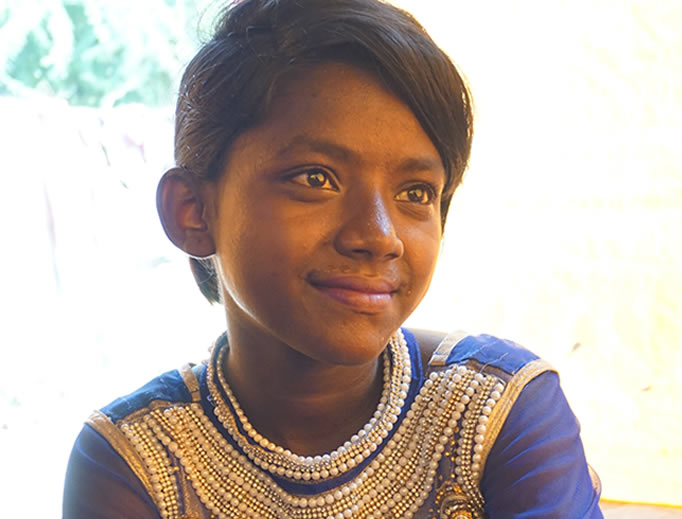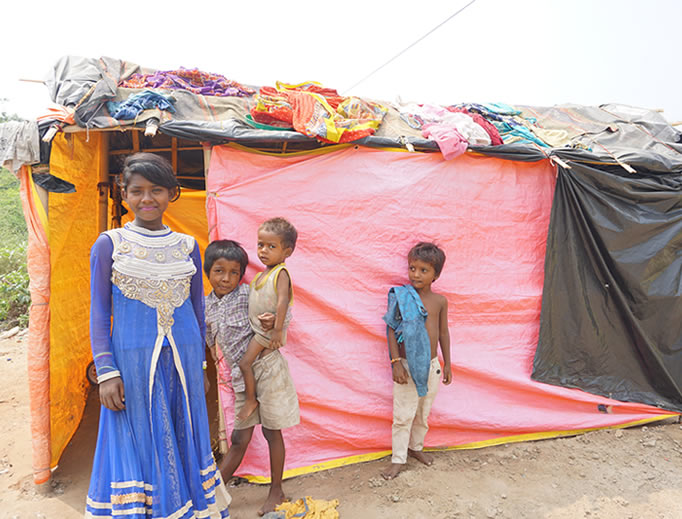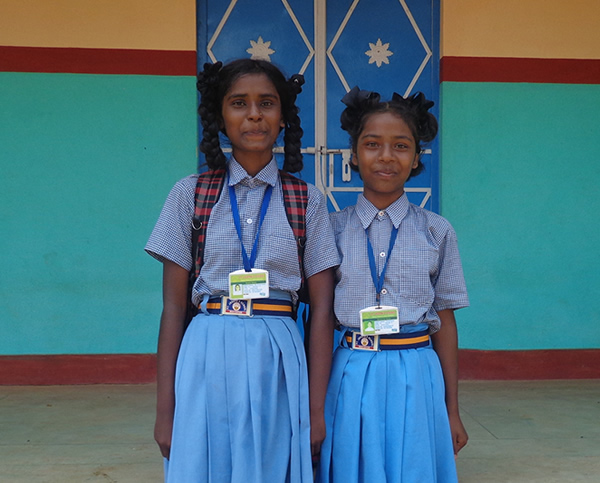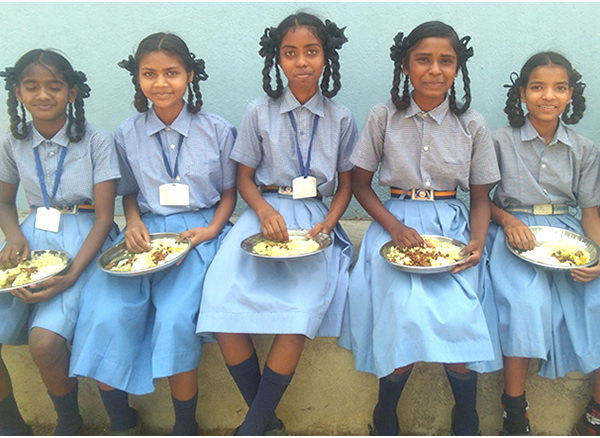Impact
In a slum, built in a disputed land at Noida, some 10 km away from the BREAD office, Sushma and her sister stay with their grandmother. She does not remember her parents. There might be around 100 households in the slum and everyone goes for begging . to arrange for their daily survival. Even Sushma’s grandmother is on the same trail. Sushma’s sister was not seen anywhere around. “ Today, she didn’t come for the class, she has been taken today by grandmother, the food provision is over and seeing children along while begging, people give more”, she responded when inquired of her sister.

The new non-formal educational center, in their slum, has attracted many children, and the one-time meal is a great incentive to be regular to the center and refraining many from begging. “ हमको दाल चावल पसंद है, सबसे ज्यादा (I like rice and lentils, the most)“ Sushma said it with a big smile. She likes everything on the menu but eagerly waits for the day when its daal and lentils on the menu. At times Mary’s Meals is the only full meal she has the whole day. 13 years old, has never been to school ever before and dreams to join a formal school setting one fine day. Sushma is very happy with the new school opened in her slum. With a lot of joy, she recited the counting. “ बहुत अच्छा लगता है, यहाँ से पढ़कर बड़े स्कूल जायेंगे ".

Poverty-stricken life does not allow her to pursue her dreams. The temporary shelter they have prepared, in a year or so Sushma will have to bend to stand inside, the roof lies so low. Cooking, other household necessary chores are done in the open air and nights are usually spent outside. Doing all this chore is the usual routine daily. No electricity and fetching water from almost a kilometer away have left life more troublesome. Sushma loves going to Mary’s Meals center, she loves the food and enjoys the lessons taught.
The non-formal center in the slum is a glimmer of hope, for Sushma and many other children like her.

Mary’s Meals in India feeds more than 42900 children daily in formal and non-formal school set ups.
 |
Anju and her sister Reena, belong to the Oraon tribe, Jharkhand. Away from her parents, they stay in a rented house near to the school. Father a farmer and mother a housewife, are educated and want their children too to be well educated. A decision of marrying against the will of the family forced them to leave the village. The family is socially and economically struggling. During all the troubles they still are determined to send their children to school.
Away from home Anju and Reena were staying at their maternal home so that they can go to school. They were forbidden to attend school due to the obligations made by their maternal family. They were forced to be involved in house chores (grazing cattle, bringing rice and assisting cooking, etc) in the field compromising their schoolings. The siblings were not treated well there, as they get abused and beaten up if they ask permission to attend school. During the paddy cultivation season, they completely stopped them from attending their classes. “We were not allowed to go to school most of the days”, Anju recalled.

It was Anju’s fierce determination which made her, and her sister boldly moves out to a rented room away from their maternal family for education. Her parents visit them once in a month to provide them with the basic provisions to survive through the month. They are located near to the forest and live in fear of elephants. Lack of water and electricity makes life more difficult. The siblings feel Mary’s Meals as a blessing to receive it in their school. They are provided with nutritious food in the afternoon. “Without Mary’s meal, it would have been hard for both of us to manage independently,” says Anju.

